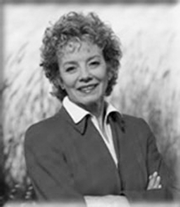Legislature’s gay and lesbian caucus turns to parliamentary move to win new vote
California’s six gay and lesbian state lawmakers will make another try at passing a bill that would legalize same-sex marriage in the nation’s largest state this year, even though a similar measure failed narrowly in the Assembly, in two successive votes on June 2.
The Assembly’s speaker, Fabian Núñez, a Los Angeles Democrat, endorsed the bill earlier this year, but conceded that he is not using his influence over other Assembly members to encourage yes votes.
After two nail-biting votes, the first stab at the bill, AB 19, by San Francisco’s gay Assemblyman Mark Leno, fell just four votes short of clearing the Assembly two weeks ago—coming as close to success as any legislative attempt at gay marriage in America.
This time, the group plans to take the unusual step—sometimes called “gut and amend”—of stripping the contents of another bill that has already passed the Assembly and inserting the language from Leno’s AB 19 into the shell. They then hope to pass that bill through the Senate and return it to the Assembly for essentially a third shot at enacting gay marriage.
Advocates are confident the measure can clear the State Senate, the critical first step in the new plan.
“We believe that the Senate will send a bill to the Assembly,” said Democratic San Francisco State Sen. Carole Migden, who is a lesbian. But she thinks the legislators still have work to do in the Assembly, either by raising more money, doing grassroots organizing or, she said, in “hand-to-hand member relations.”
Leno argues that the prospects in the Assembly would improve if the measure clears the Senate, giving gay marriage proponents “political wind at our back.”
“That’s a very different position than we were in two weeks ago,” Leno said.
But gay advocates are incensed at Núñez, who signed on as a principal co-author earlier this year after Leno agreed to withdraw a similar measure last year because it was an election year. Núñez’s name appears at the top of the bill, but he hasn’t put the weight of his office behind it, instead allowing individual Assembly members to vote their own consciences.
“It’s extremely disappointing and surprising,” Geoff Kors, the head of California’s gay rights lobby, said of Núñez’s passive stance, adding, “That doesn’t strike us as leadership.”
“He remains very supportive,” said Núñez spokesman Richard Stapler on Tuesday, but added, “It’s one of those tough votes that they’ve got to make up their minds about in the end.”
The votes in the Assembly were even closer then the four-vote margin suggested, advocates said, and Núñez’s influence could push the vote tally over the top.
On June 2, when the vote tally reached 37 of the 41 it needed to pass, one of the measure’s co-authors, Mervyn M. Dymally, a Compton Democrat, was off the floor.
“There were a couple of votes who were prepared to be 39 and 40, had we had the 41st,” so potentially the group needs to pick up just one additional vote to send the measure to the governor, Leno maintained.
Leno and other gay legislators have contributed heavily to campaign funds controlled by the speaker—in Leno’s case almost $400,000—which Núñez directed partly to candidates who ultimately voted no or abstained on the bill.
If the marriage measure were to clear both houses of the Legislature, the hot-potato bill would go to Republican Gov. Arnold Schwarzenegger, who has made conflicting statements about his position on the issue.
The state’s electorate, which will ultimately decide the issue by initiative, is sharply split. Slightly more than a year ago, according to a Los Angeles Times poll taken while same-sex marriages were taking place in San Francisco, about a third of Californians favored same-sex marriage. About a quarter oppose any form of gay unions. The rest fell somewhere in between, with a solid majority favoring some sort of civil unions or domestic partnership. California already has the strongest domestic partnership provisions in the country, outside of Massachusetts and Vermont.
If a gay marriage bill makes it to his desk, no matter what Schwarzenegger does, he will anger, and please, about equal numbers of Californians. But Leno doesn’t see that as a problem for the governor.
“He would be the first governor to sign a marriage equality bill initiated by the legislature,” Leno said. “It would put him on a status with [former California Gov.] Earl Warren, who as chief justice of the U.S. Supreme Court ended the ban on interracial marriage.
“I think it’s an opportunity for him,” Leno said. “A rare historic opportunity.”
gaycitynews.com


































